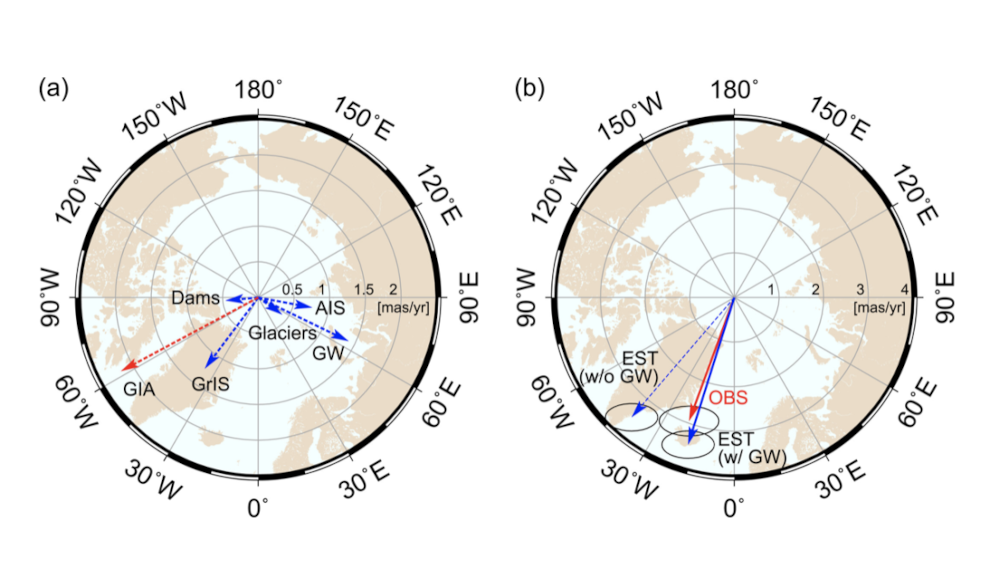The extraction of groundwater by humans has caused a shift in the Earth’s axis, which holds the mass of the entire planet, in recent decades. The Earth has two North Poles, the magnetic North Pole and the North Pole that runs through the planet’s rotational axis. The movement of the Earth’s rotational axis has been attributed to the melting of glaciers due to climate change. However, a study published in Science Advances by researchers at the Jet Propulsion Laboratory (JPL) in 2016 suggested that the extraction of groundwater by humans also affects the movement of the Earth’s rotational axis.
According to a recent study published in Geophysical Research Letters by scientists at Seoul National University, the effects of groundwater extraction have been quantified. The study found that the redistribution of groundwater has the greatest influence on the shift of the Earth’s rotational poles, in addition to climate-related causes. The researchers conducted two model calculations, one considering only the effects of climate change on the movement of the North Pole and the other including the extraction of groundwater by humans. The measured displacement of the North Pole could only be adequately explained by including groundwater extraction in the calculated models.
The study also found that the extracted volume of water between 1993 and 2010 was 2150 billion tons, which theoretically led to a six-millimeter increase in sea level. The researchers expressed concern about the additional rise in sea level caused by the extraction of groundwater. While the shift in the Earth’s rotational poles does not have any direct impact on human life, long-term changes could potentially affect the climate of our planet.










